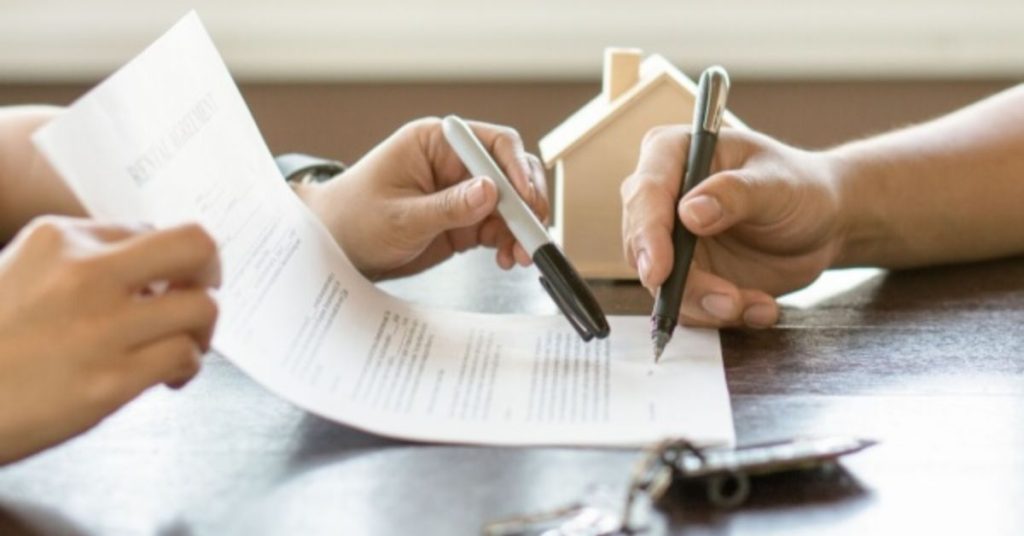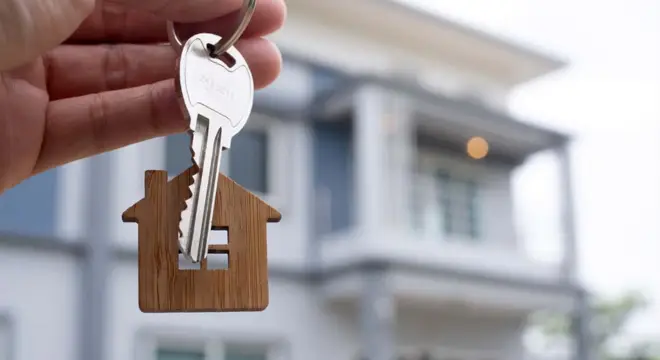Buying a Home? 16 Documents You Need—and 6 That Could Cost You
It’s not enough to just choose the right location and negotiate a good price when buying a home. There is a lot of paperwork. And if you don’t have the right papers ready at the right time, you could lose your dream home.
I’ve seen buyers lose deals because they couldn’t find a pay stub or a bank statement. Not cool. This guide isn’t just a list of things to do; it’s a survival kit.
We’re going to go over every important document you’ll need from the first day of your home search until you get the keys. I’ll also tell you what to stay away from, what no one else tells you (even the blogs miss it), and how to stay ahead of common delays.
No extra stuff. No old advice. A clear plan you can trust.
This checklist will help you stay organised, confident, and ready for anything, whether you’re buying your first home or your fifth.
Let’s make sure that paperwork never makes you lose your house.
Before You Even Start — Understand Why These Docs Matter
Let’s be honest: buying a house isn’t just an emotional thing; it’s also a legal thing. And legal stuff means paperwork.
Most first-time buyers don’t know this: at different points in the process, the mortgage lender, the real estate agent, the seller, and the title company will all ask you for some kind of document. The whole thing can stop or, even worse, fall apart if you’re not ready.

It’s like applying for a loan, booking a flight, and signing a contract all at the same time. Every piece of paper (or PDF) has a specific purpose.
- Some papers show that you can pay for the house.
- Others verify who you are.
- And a few keep you safe if something goes wrong after closing.
If you skip one, it’s like trying to get through airport security without an ID. Want a broader understanding of what the home buying process looks like from start to finish this year? Check out our 2025 home buying guide for a clear, step-by-step overview.
Here’s a quick fact you should know:
Zillow says that almost one out of four buyers didn’t fully understand the papers they signed when they bought a home. That’s a lot of danger.
So, this isn’t just a bunch of papers. This is your proof, your leverage, and your safety.
Documents You Need at the Pre-Approval Stage
Before you look at listings or go to open houses, you need to get a mortgage pre-approval. This is not something you can change your mind about.
Not only does it show sellers you’re serious, it also lets your real estate agent and lender know you’re ready to move. You can’t buy anything without it.
When giving you a pre-approval letter, most U.S. lenders will ask for the following:
1. Proof of Income
This includes your most recent pay stubs (usually from the last 30 days), W-2s from the last two years, and any proof of bonuses, overtime, or extra income. You should be ready to give two years’ worth of 1099s and profit-and-loss statements if you work for yourself or as a freelancer. Some lenders might also want to see your business’s bank statements or tax returns. Why this is important: Lenders want to see steady, reliable income, not just a good month or a good guess.
2. Federal tax returns from the last two years
This lets lenders see how your finances are doing over a longer period of time. Your application could be accepted or denied depending on how much your income changes or how much you deduct.
Tip: Be ready to explain a big change in your income. Lenders don’t like surprises.
Curious what your monthly payments might look like? Here’s what a $431K home costs per month in 2025 at a 6.85% interest rate—so you can plan your finances before submitting paperwork.
3. Bank statements from the last two to three months
You will need to show that you have the money for your down payment, earnest money, and closing costs. Most lenders want full statements, not just the balances.
Heads-up: You will need to find out where any big, strange deposits (like a cash gift) came from, and you may need a signed gift letter from the person who gave you the money.
4. A photo ID issued by the government
A driver’s license or a U.S. passport is usually what you need. The name on your mortgage application and all supporting documents must match.
5. Information about your credit report and debts
The lender will look at your credit report, but you should know what’s on it first. Be ready to talk about any debts you have, like student loans, car loans, credit cards, or other loans. If your debt-to-income ratio is close to the line, even a $100 monthly payment can affect whether or not you get approved. A lot of buyers think that pre-approval is just a quick talk or filling out an online form. It isn’t. It’s an audit of your finances, and how well you get ready now will affect how smoothly everything else goes later. If you do this step right, you’ll be able to buy things instead of just hoping.
Documents You’ll Need Once You Make an Offer
Things move quickly once you’ve found a house and made an offer. The paperwork starts to pile up. At this point, your lender, your agent, and the seller’s side all need documents from you at the same time.
Once you’re under contract, you’ll usually need to give (or sign) these things:
1. Agreement to Buy
This is the legal agreement between you and the seller. It lists the price, any conditions that need to be met, the timeline, and the terms of closing. Your real estate agent will help you write it, but you need to read it all the way through because it is legally binding once you sign it. Why it matters: This is the paper that you send to your lender so they can start working on your loan.
2. Receipt for the earnest money
You usually include earnest money with your offer. This is a deposit that shows the seller you’re serious. Usually, it’s between 1% and 3% of the price. Get a receipt and proof that the money was put in escrow. You will need it for both your records and your lender.
3. Updated Financials (if enough time has passed)
Your lender may ask for updated pay stubs, bank statements, or proof of employment if your pre-approval was issued more than 30 to 60 days ago.
Important: You must tell us right away about any big changes in your finances, like getting a new job or making a big withdrawal. It can change whether or not you can get a loan.
4. Gift Letters (if they apply)
Your lender will need a signed gift letter from you if a family member or partner is giving you money for your down payment or closing costs. This letter will say that the money is not a loan.
Tip: The letter must say exactly how much money is being given, who the buyer is, and that repayment is not expected.
5. Addendums for contingencies (if there are any)
If your offer has any contingencies, like a financing contingency, a home inspection clause, or an appraisal rider, you’ll need to sign more papers to make them official.
These protect you, but they also make it so that the deal can’t close until certain legal conditions are met.
At this point, every document you send must be on time, correct, and complete. Any delay, such as a missing signature or an old pay stub, can make underwriting take longer and give you less power in negotiations. This part isn’t just about filling out forms for the sake of filling them out. It’s about proving that you’re a reliable, ready buyer so the seller has no reason to doubt your offer.
Documents Needed During the Underwriting Process
A lot of buyers don’t realise this part.
The lender’s underwriting team takes over once your offer is accepted and your loan is being processed. What do they do? To check every detail, make sure there is no risk, and decide whether or not to give final approval.
That means more paperwork, some of which is the same as before, but all of it is necessary.
Here is what they will probably ask for, even if you have already sent it:
- Letter of Employment Verification
Underwriters want to make sure that you still have a job and are making the money you say you are. You might need to send a formal letter or get in touch with your HR department or direct supervisor.
If you’ve changed jobs while the process is going on, let your lender know right away. Job changes that happen quickly can stop approvals.
- Most Recent Pay Stubs
The underwriter may ask for your most recent pay stubs (within the last 30 days), even if you already sent them during the pre-approval process.
They’re looking for patterns and things that don’t add up, like sudden pay cuts or fewer hours.
- New Bank Statements
You should be ready to send in your most recent checking and savings account statements, especially if it has been more than 30 days since you made your offer.
A big purchase or a drop in your balance (like for new furniture) can make them look more closely at your account.
- Letters of Explanation (LOEs)
Underwriters like things to be clear. They’ll ask for a written Letter of Explanation if anything about your money makes them wonder, like a credit inquiry, a cash deposit, or a change in your income.
Here is where you tell the story in your own words and explain why it happened.
My parents gave me the $3,000 deposit as a wedding gift. It was not a loan.
- Proof of Insurance for the Homeowner
You will need to choose a homeowner’s insurance policy and show proof of coverage, with the lender named as the mortgagee, before the loan can be finalised.
Why it matters: You can’t get a loan without insurance. This keeps both you and the lender from losing property.
- Papers about property
You will also get and look over papers related to the house itself, like:
- Report of the appraisal
- Report on the home inspection
- First title report
- HOA papers (if they apply)
You might not make these yourself, but you’ll often need to read, sign, and sometimes respond to them quickly.
Underwriting seems like it happens over and over again. But that’s the point. Before approving what could be the biggest loan of your life, lenders want to be sure.
If you stay organised and responsive at this point, you should be able to get final approval without too much stress.
Final Documents Needed Before Closing Day
You’re almost done, but this last step is where a lot of deals run into problems they didn’t expect. It sounds easy to close day, but it’s actually a legal deal with a lot of money and a lot of people involved. All of the papers must be correct and ready.
Before you sign the final document, you need to have these things in place:
- Closing Disclosure (CD)
In the eyes of the law, your lender must send this at least three business days before closing. It tells you the final terms of your loan, including the interest rate, closing costs, and monthly payment.
What to do: Read it one line at a time. Speak up right away if something seems wrong. Don’t wait until closing day.
- Proof of Funds for Closing
You will need to show proof that you can pay your down payment, closing costs, and any remaining balance. This is usually done with a wire transfer confirmation or a certified cashier’s cheque.
Please note: We do not accept personal checks. Wire fraud is real, so always check the instructions with your title company.
- ID with a picture
Bring a photo ID issued by the government, like a driver’s license, passport, or state ID, to the closing table. The name must match your mortgage documents exactly.
Tip: If your name changed recently (marriage, etc.), bring backup documentation.
- Final Walkthrough Acknowledgement
This confirms you walked through the property within 24 hours of closing and found it in the agreed-upon condition—no damage, no missing appliances, no last-minute surprises.
- Title and Escrow Documents
These include:
- Title insurance policy
- Deed of Trust
- Promissory Note
- Settlement statement (HUD-1 or ALTA form)
Most of these are prepared by the title or escrow company, but you’ll sign and receive copies. Make sure you understand each one before closing—don’t just skim.
- Loan Package (from your lender)
This is a thick stack of paperwork—sometimes 100+ pages—confirming the final terms of your mortgage. You’ll sign it all at closing, and get digital or printed copies.
You don’t officially own the home until these documents are signed, notarized, and recorded. Missing even one document—or finding an error in the loan terms—can delay the closing or even void the deal.
Treat this stage like you would a contract at work: no assumptions, no shortcuts, no signing under pressure.
Documents You Should Absolutely Avoid or Watch Out For
At this stage, you’re buried in paperwork—and that’s exactly when costly mistakes happen. Not all documents are necessary, and not all are in your best interest. Some you should delay signing. Others? Avoid entirely unless you’re 100% sure what they mean.
Here’s what you should look out for:
- Junk Fees Hidden in Your Loan Estimate
Lenders sometimes bundle in excessive charges under vague labels like:
- “Processing fee”
- “Doc prep fee”
- “Courier fee”
- “Underwriting review fee”
What to do: Compare your Loan Estimate with your Closing Disclosure. Question anything that wasn’t there before or looks inflated. You have every right to negotiate or ask for removal.
Pro tip: Look up fee averages from Consumer Financial Protection Bureau (CFPB) to see what’s normal in your state.
- Dual Agency Agreements (Without Understanding the Risks)
In some states, your real estate agent can legally represent both you and the seller—this is called dual agency.
But here’s the problem: it creates a serious conflict of interest. They can’t negotiate aggressively for you if they’re also representing the seller.
Avoid signing a dual agency disclosure unless you fully understand what you’re giving up.
- Early Possession Agreements
Sometimes a buyer wants to move in before closing. Sounds convenient, but it’s risky. If the deal falls through, you could end up stuck, liable, or even evicted.

What to do: Never take possession before closing unless there’s a formal rent-back agreement, and even then—only with attorney review.
- Addendums with Missing Dates or Blanks
Never sign a contract, rider, or contingency form that has blank spaces, missing dates, or “TBD” terms.
If it’s incomplete, it’s unenforceable—or worse, editable after you’ve signed.
- “As-Is” Clauses Hidden in Offer Terms
Some sellers try to sneak in “as-is” clauses that waive your right to request repairs after inspection. If you’re buying a fixer-upper knowingly, fine—but you shouldn’t waive those rights without serious thought.
What to do: If you see “as-is,” slow down. Get a full inspection. Know what you’re agreeing to.
- Unverified Title or Lien Documents
Never rely solely on a seller’s word about the title being “clear.” Always ensure a licensed title company runs a full title search and issues title insurance. If the home has a lien, you could inherit that debt.
Most buyers don’t read fine print—and that’s where financial traps live. The truth is, some documents exist to protect other parties, not you. Knowing which ones to pause on or reject entirely can save you from legal headaches, lost deposits, or worse.
Your Final Home Buying Checklist (Quick Recap to Save or Print)
Let’s put everything together. This is a neat, step-by-step list of all the important papers you’ll need to buy a home in the U.S., from getting pre-approved to closing.
You can copy this, print it out, or send it to your lender or real estate agent.
Before You Go Shopping
- Pay stubs from the last 30 days
- W-2s from the last two years
- Tax returns for the last two years
- Bank statements for the last two to three months
- A photo ID, like a driver’s licence or passport
- Debts and credit history
- Documents for self-employment (if needed)
When You Make an Offer
- Agreement to buy
- Proof of earnest money
- Updated financial documents (if needed)
- Gift letter (if you got the money as a gift)
- Addendums for contingencies
- Proof of pre-approval
While Underwriting
- Letter of verification of employment
- Most recent pay stubs
- New bank statements
- Letters of explanation (if marked)
- Homeowner’s insurance policy
- Reports on the appraisal and title (from the lender or title company)
Right Before Closing
- Closing Disclosure (CD)
- Receipt for wire transfer or certified funds
- Photo ID from the government
- Final walkthrough form
- All loan and escrow papers that need to be signed
- Confirmation of title insurance
Bonus: Papers to Stay Away From or Ask About
- Question vague charges about hidden lender fees
- Understand dual agency agreements first
- Early possession deals (only with protection)
- Addendums that are blank or not signed
- “As-is” clauses (which give inspection rights)
- Title documents that haven’t been checked (always get title insurance)
Why this list is important: You don’t have time to look for papers while you’re doing business. This gives you all three: clarity, control, and peace of mind.
Put it on paper. Give it to someone else. Use it. In a process with a lot of paperwork, it’s your armour.
Real Talk—What Most First-Time Buyers Aren’t Told About the Paperwork
You’re not the only one who feels overwhelmed right now. Here’s the truth that no one really tells you:
Not only is it hard to buy a house because of the money, but it’s also hard to deal with the stress of the process.
The never-ending paperwork, last-minute requests from lenders, and having to check forms again and again all add up. And if no one gets you ready, you might feel like you’re always behind and could lose the deal over something small.
But here’s what I’ve learned from working in real estate for a long time:
- Most of the time, things are late because buyers weren’t told what would happen next.
- Not knowing what’s normal and what’s a red flag is what causes most stress.
- And most of the time, people regret not asking questions because they didn’t want to seem “difficult” or “naive.”
Let me be clear: It’s okay to ask. To push back. To read slowly. To ask for more time.
No lender or agent should make you sign anything quickly.
Smart buyers are the ones who stop and check again.
This is what I want you to remember from this list:
The paperwork is what makes the deal official. It’s not busy work; it’s the structure that keeps your future safe.
So give it the attention it needs. But also, give yourself credit for learning this stuff. A lot of people don’t.
You’ve already done more than most people who are looking to buy by reading this far. That makes me think you know what you’re doing with the rest of the process.
Let’s end it here.
One last thing: if this checklist helped you feel more ready, please share it with someone else. Give it to someone else who is also looking to buy a home. It could save them a lot of trouble and maybe even a deal.
And if you’ve already been through it, tell us what your biggest paperwork surprise was in the comments. Let’s make it easier for the next buyer.
Ready to Make Home Buying Easier?
If this checklist helped you, check out BuildLikeNew.com. We’ve got tools, guides, and real advice to help you buy smart—without the overwhelm.
Got a Question or Tip?
Leave a comment below. What document surprised you the most—or almost tripped you up?
Your story might help the next buyer avoid the same mistake.
Disclaimer: This checklist is for general guidance only. Requirements can vary by state and situation. Always check with a licensed real estate agent, lender, or attorney before making decisions.


